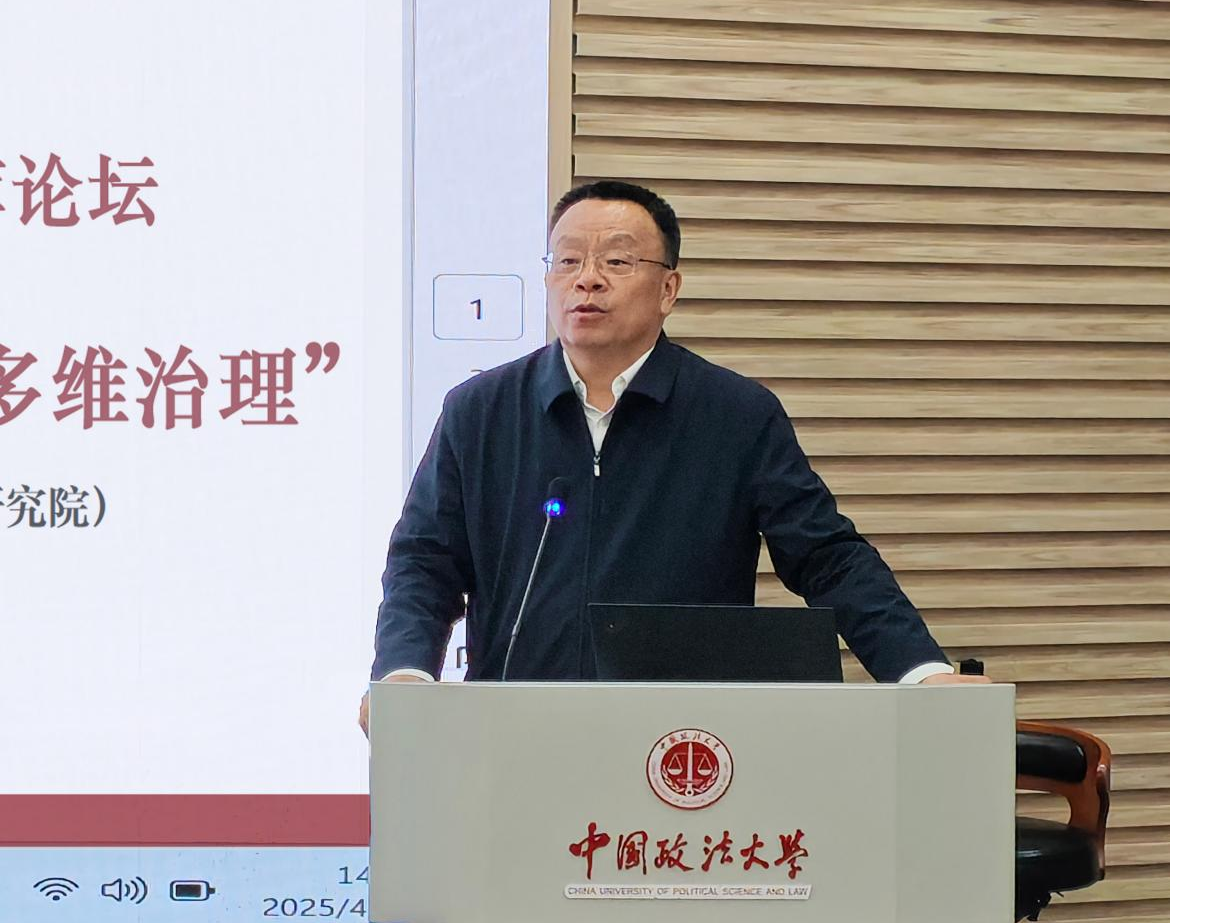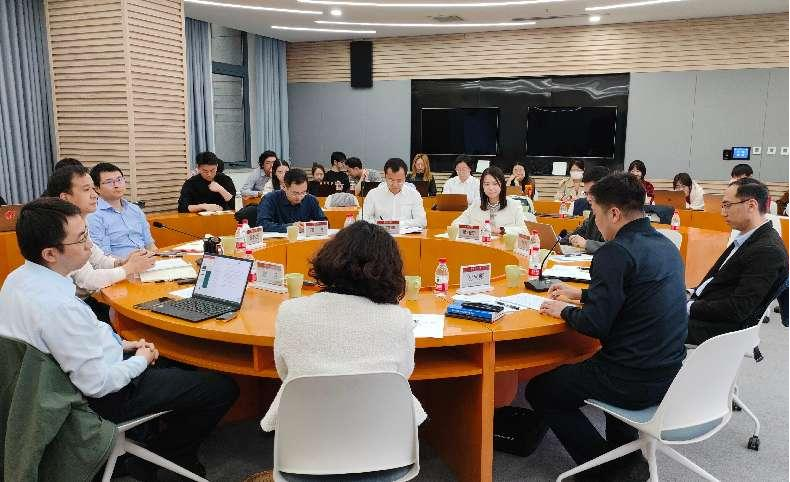On the afternoon of April 18, 2025, the inaugural High-Level Think Tank Forum of China University of Political Science and Law (CUPL) was jointly convened by the Institute for Human Rights (Institute for Contemporary Rule of Law) and the School of Criminal Justice. Initiated by the Institute for Human Rights, this forum series aims to establish a transdisciplinary platform bridging academia, policymakers, and industry stakeholders. Guided by the principles of "problem-oriented inquiry, solution-driven priorities, and interdisciplinary collaboration", it seeks to generate actionable insights for addressing critical national strategic priorities and socio-economic challenges through knowledge exchange and policy-relevant research. Under the theme "Multidimensional Governance of Artificial Intelligence and Autonomous Driving", the forum brought together leading experts from judicial bodies including the Supreme People's Court and the Supreme People's Procuratorate, regulatory authorities such as the Beijing Municipal Public Security Bureau Traffic Management Bureau, and academic institutions like Peking University Law School, Renmin University of China's Institute of Future Rule of Law, and Beijing Jiaotong University's National Institute of Economic Security. CUPL faculty members across disciplines also contributed to the discussions. Professor Lin Hua, Vice Dean of the Institute for Human Rights (Institute for Contemporary Rule of Law), chaired the forum, facilitating dialogues on legal frameworks, ethical standards, and institutional innovations required for emerging technologies.

Professor Shi Jianzhong, Vice President of CUPL, delivered the opening remarks. On behalf of the university, he extended gratitude to participating experts and scholars. He elaborated on the institutional vision and operational framework of CUPL’s High-Level Think Tank Forum, underscoring the imperative of interdisciplinary collaboration to address complex societal challenges. Professor Shi emphasized that think tank researchers must prioritize *problem-centric approaches*, leveraging deep academic expertise to develop actionable policy solutions. Illustrating his arguments with case studies, he analyzed pressing issues currently confronting China’s technological and regulatory landscapes. Concluding his address, he expressed confidence that the forum would evolve into a flagship initiative bridging academia and practice, consistently generating high-impact research to inform national policymaking and global governance discourse.

Subsequently, the attending experts and scholars spoke in turn around the theme of this forum. Experts from practical departments point out that China's criminal law is transforming from information network crimes to data crimes. It is necessary to prudently legislater in light of new practices while attaching importance to the role of prerequisite laws such as the Road Traffic Safety Law. Several experts analyzed technical challenges such as the determination of dangerous driving, the transparency of algorithms, and the standardization of evidence in the field of autonomous driving. They proposed plans such as establishing a technical expert witness system and promoting the improvement of regulations, and shared experiences in addressing the difficulty of accident investigation and evidence collection through innovative working mechanisms. Academic discussions mainly focus on multi-dimensional governance: The insurance mechanism can optimize liability allocation and risk prevention and control, and it is necessary to balance tort rules and market development; Autonomous driving legislation faces challenges such as subject definition and algorithmic black boxes. International experience should be drawn upon to balance safety and technological development. Technology is of strategic significance to economic security. It is necessary to rely on market advantages to promote innovation and build a dynamic governance system. Many scholars have emphasized the need to accelerate the revision of the Road Traffic Safety Law, establish systematic safety regulations, clarify the responsibilities of developers, and conduct systematic research on each link of the industrial chain at the same time. Regarding the regulation of artificial intelligence, it is suggested to start from three aspects: responsibility division, identity identification, and algorithm regulation. Criminal law needs to innovate on the basis of the traditional framework to adapt to technological changes.